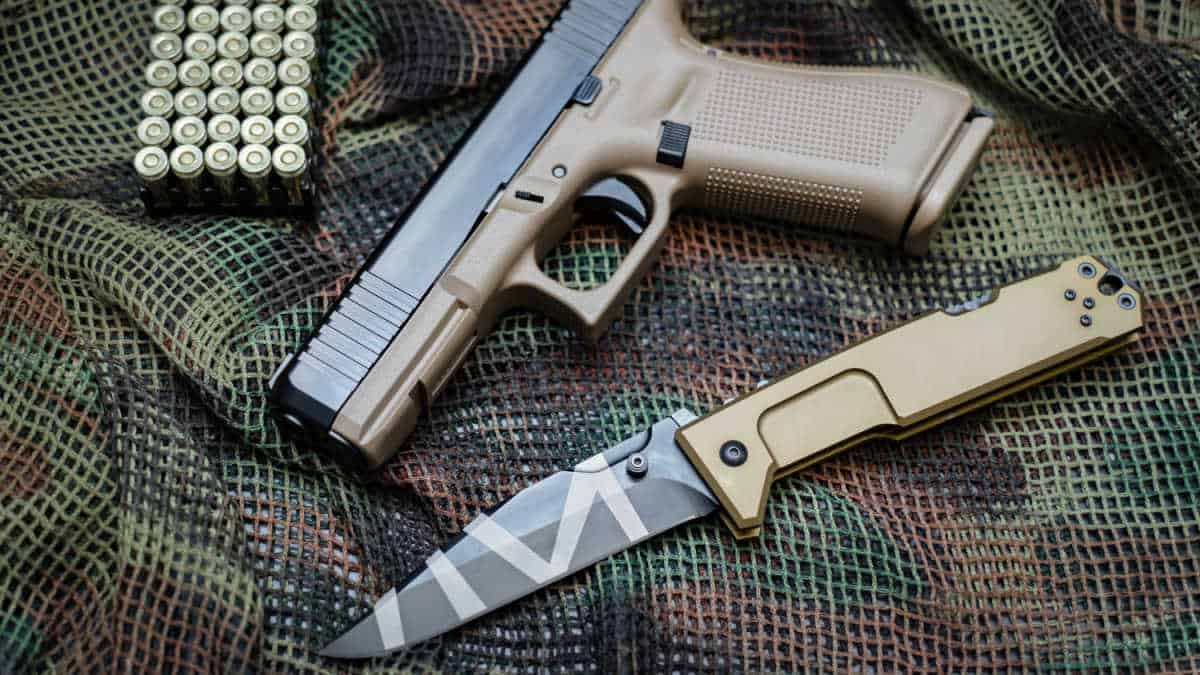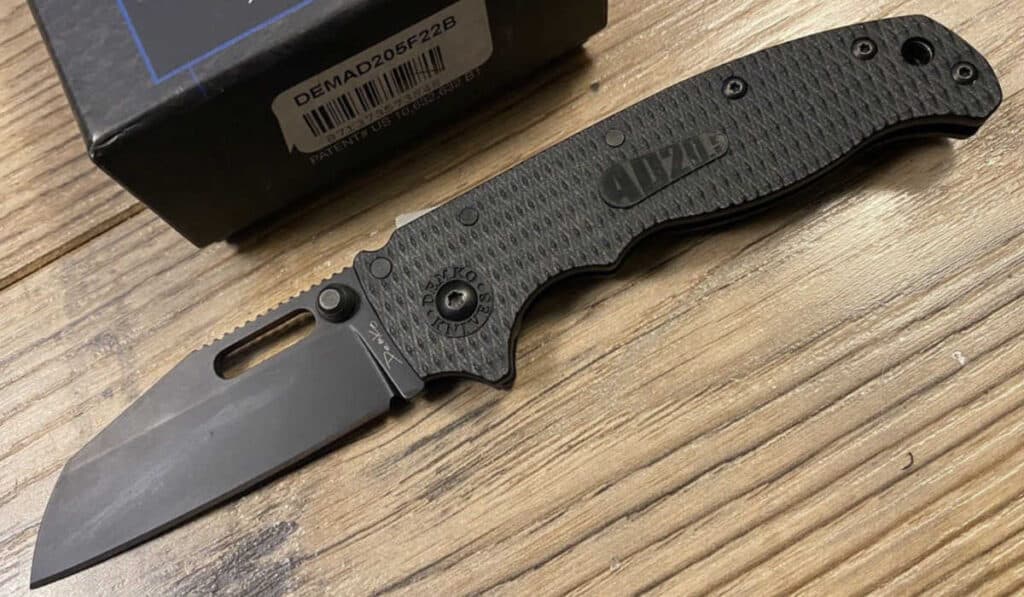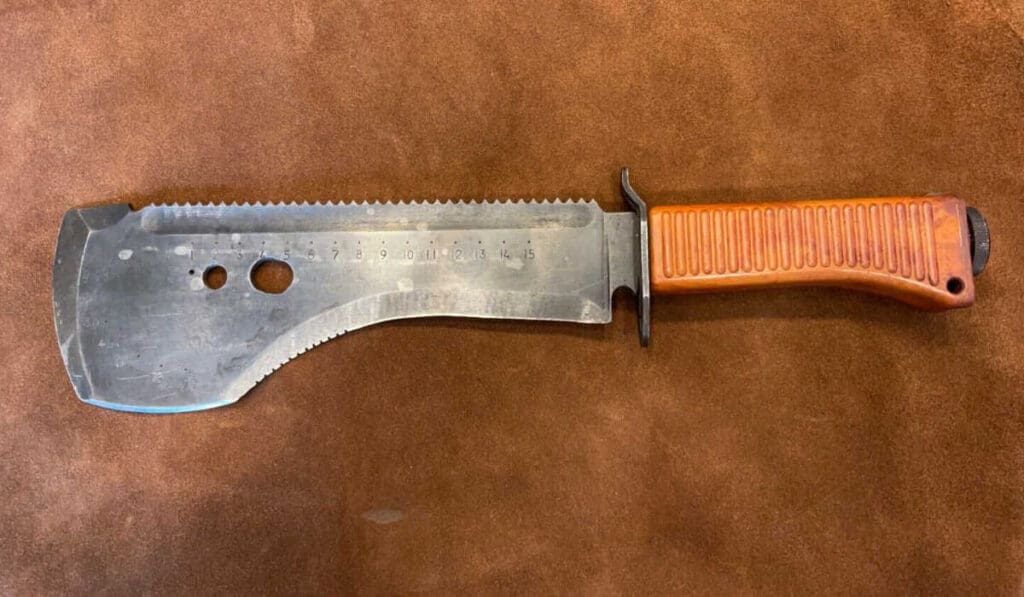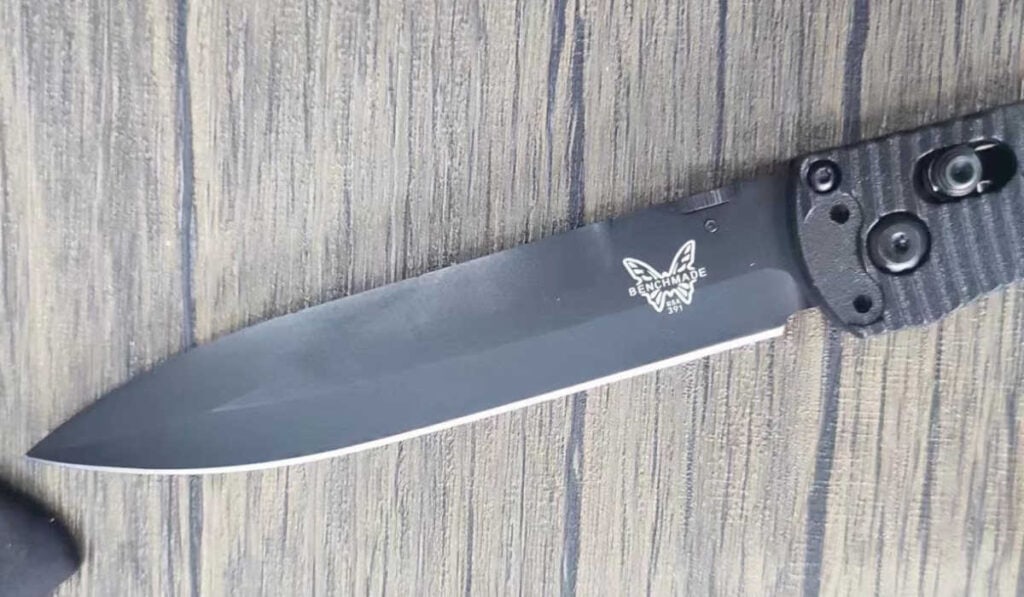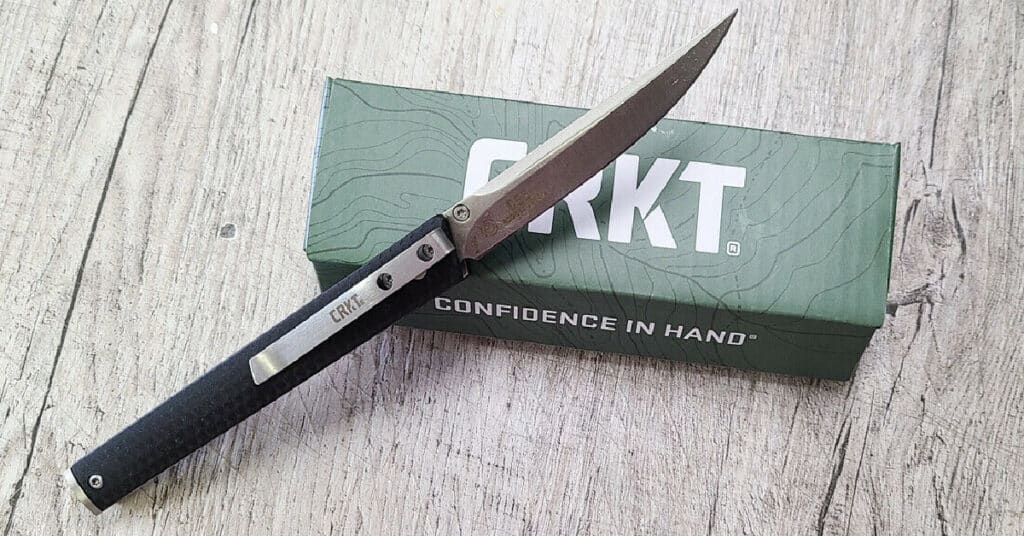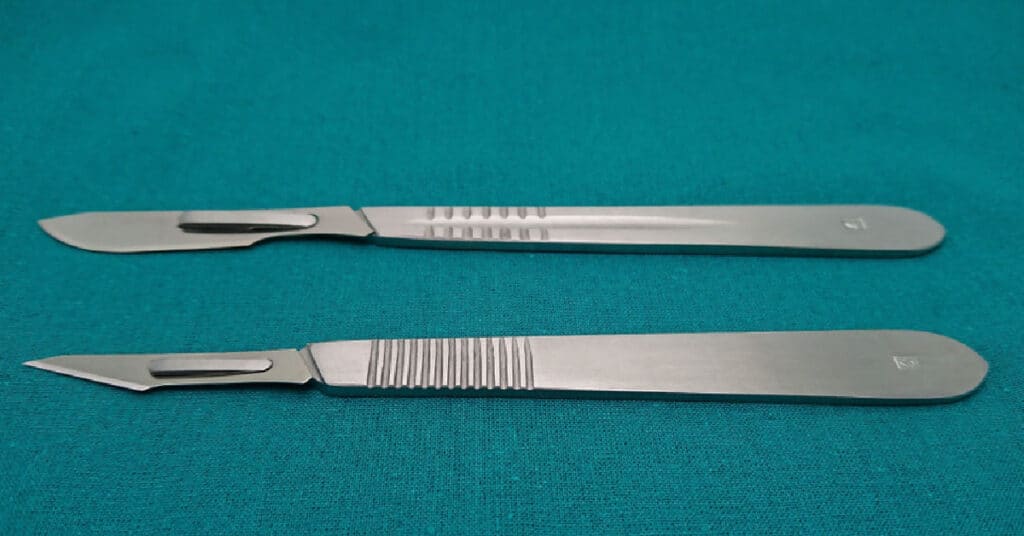As an Amazon Associate I earn from qualifying purchases.
At A Glance
Concealed carry permits apply not only to firearms but also to certain types of knives. The regulations for carrying concealed knives vary by state, often hinging on the blade’s length. Some states require permits for concealed knife carry, which might involve background checks and safety courses. However, reciprocity for these permits is inconsistent across states. Both state and federal laws govern knife carry; while states define the type, size, and carrying method, federal laws apply to certain areas and interstate transport. Certain locations like schools, government buildings, and establishments serving alcohol usually have strict concealed carry restrictions. While permitless and open carry laws for firearms are becoming more common, these typically don’t extend to knives. Carrying a knife for self-defense, like carrying a firearm, requires understanding local regulations. Legal consequences for illegal concealed knife carry can be severe, including imprisonment, fines, and potential felony convictions.
Concealed carry permits are primarily designed to allow law-abiding citizens to carry concealed handguns for self-defense purposes. In some jurisdictions, it might also apply to other weapons, such as knives, but this depends on the local laws and regulations. It’s essential for individuals considering carrying a concealed knife to research their state’s specific laws to ensure compliance.
In the United States, carry laws vary from state to state, with some states allowing concealed carry of certain knives, while others may impose restrictions based on the type or length of the blade. For instance, some states may permit the open carry of certain knives but prohibit their concealment.
➤ Read More: State Knife Law Directory
Permits and laws aside, the primary purpose of carrying a concealed weapon, be it a firearm or a knife, is to offer a means of personal protection. However, understanding the regulations governing concealed carry is crucial to avoid any legal issues. Therefore, it’s necessary to familiarize oneself with the concealed carry laws applicable to knives in one’s jurisdiction prior to engaging in this practice.
Concealed Carry Permits for Knives
When discussing concealed carry permits, it’s essential to consider that these rules do not only apply to firearms but also to certain types of knives. The regulations for carrying concealed knives vary from state to state, and obtaining a permit for a concealed knife may require different procedures.
In some states, knife carry laws prohibit individuals from carrying concealed knives above a certain length, while open carry of the same knife is permitted. Typically, the length of the blade plays a crucial role in determining whether a specific knife is considered a concealed weapon.
Exceptions to concealed carry laws do exist, such as in North Carolina, where an exception is made for “ordinary pocket knives.” However, certain knives such as “bowie knives” or “dirks” are still prohibited from being carried by minors in the state. Additionally, knives are not allowed to be possessed openly or concealed on school grounds.
A permit is generally required to carry a concealed knife in states with strict knife laws. The process for obtaining a concealed carry permit for a knife might involve background checks, fingerprinting, and taking a safety course, depending on the jurisdiction. In some areas, such as Clark County in Nevada (where Las Vegas is located), a knife-specific CCW permit is necessary to carry any concealed knife with a blade three inches or longer.
It is important to note that reciprocity for CCW knife permits varies across states, meaning that a permit obtained in one state may not be valid in another. As a result, those who carry concealed knives should familiarize themselves with the state laws and regulations in their jurisdiction, as well as any other areas where they may travel.
While the rules and regulations governing concealed carry permits for knives can be complex and vary significantly from state to state, understanding these laws is crucial for staying within legal boundaries. Anyone looking to carry a concealed knife should research and follow all relevant state laws, permits, and conditions to ensure responsible and lawful knife usage.
State and Federal Laws Governing Knife Carry
When it comes to carrying knives, both state and federal laws play a role in determining the legality of the activity. State laws often govern the type, size, and manner in which a knife can be carried, while federal laws primarily pertain to restrictions on carrying knives in certain areas or interstate transportation.
In Florida, for example, the state’s laws regulate the carrying of concealed weapons, which include knives. Under the Florida Statutes, an individual may legally carry a common pocketknife or a knife designed for utility purposes, such as a box cutter or a multi-tool, without a permit. However, carrying a concealed weapon like a ballistic knife or a switchblade is considered unlawful.
Each state has its own set of laws and regulations on knife carry, and what may be legal in one state might be illegal in another. Some states restrict the length of the blade, others ban certain types of knives altogether, and a few have more lenient regulations, allowing for open or concealed carry of most types of knives.
It is essential to understand the specific state laws of the place you live in or plan to visit to ensure compliance with local regulations. For instance, California has a strict limitation on concealed knives, making it illegal to carry a knife with a blade longer than two and a half inches.
On the federal level, the Federal Law Enforcement Officers Safety Act (LEOSA) aka HR 218 focuses on the carrying of concealed firearms, but generally does not extend its jurisdiction to knives. However, carrying knives is restricted in certain federal buildings, lands, and airplanes under federal law. This means that even if your state allows concealed carry of a specific type of knife, you must still adhere to the federal regulations when entering federally owned or controlled premises.
In conclusion, being aware of both state and federal laws governing knife carry is crucial in ensuring that you stay on the right side of the law. Always research the specific regulations that apply to your situation, and exercise caution when carrying a knife either openly or concealed.
Knife Types and Restrictions
In the United States, knife laws can vary by state and often by city. While some states have specific regulations regarding various knife types, others only provide general guidance. This section contains information about the most common knife types and their respective restrictions, focusing on switchblades and other automatic knives, as well as daggers and swords.
Switchblades and Other Automatic Knives
Switchblades, also known as automatic knives, are knives with a folding or sliding blade that can be opened with the push of a button or switch. Federal law prohibits the manufacture, importation, and distribution of switchblades, though in some states, owning a switchblade is legal. However, carrying one in public may be subject to local regulations.
In some states, such as Louisiana, it is illegal to carry any switchblade or gravity knife, regardless of blade length. Other states, like Florida, prohibit the use and possession of gravity knives, but allow for the ownership and carry of switchblades.
Daggers and Swords
Daggers are characterized by their double-edged blade, often with a sharp point designed for thrusting into an opponent. In some states, daggers are considered illegal to carry concealed due to their potential for causing serious bodily injury or death. For example, in Nebraska, a dagger is defined as any knife with a blade over three and a half inches in length and capable of causing death or serious injury.
Swords, on the other hand, are typically long-bladed weapons used for slashing and thrusting. While they may not fall under the same restrictions as knives, swords can be subject to separate regulations. In some states, it is illegal to carry a concealed sword, while open carry may be permissible. However, local restrictions may apply to specific types of swords, such as those classified as “dangerous weapons.”
To ensure compliance with the law, it is essential to research local regulations and restrictions related to specific knife types and their intended use. Keep in mind that laws can differ significantly from one jurisdiction to another, so it is always a good idea to stay informed and vigilant to avoid legal issues while carrying knives, daggers, or swords.
Permit Application Process
Eligibility Requirements
To apply for a concealed carry permit, you must meet certain eligibility requirements. Generally, applicants need to be US citizens, at least 21 years of age, and legal residents of the state where they are applying. Some states may have additional requirements, such as not being prohibited from owning a firearm due to a criminal conviction or mental health issues.
Background Checks
A key part of the permit application process is the background check. Law enforcement agencies, such as the sheriff’s office or county police department, are typically responsible for conducting these checks. Background checks help to ensure that those who are granted a concealed carry permit are law-abiding citizens who do not pose a risk to public safety. In some states, this process may also involve fingerprinting, which provides an additional layer of security by verifying the applicant’s identity. The Florida Department of Agriculture and Consumer Services is an example of a state agency that handles the background check process for concealed carry permits.
Training Course
Before being granted a concealed carry permit, applicants may be required to complete a firearms training course. These courses typically cover topics such as safe handling and storage of firearms, legal aspects of carrying a concealed weapon, and basic marksmanship. Additionally, the training may include a live-fire component where participants must demonstrate proficiency in using their handgun.
In some jurisdictions, the training requirement extends to cover other weapons, such as knives, that may be carried under the permit. It is essential to check your local laws and regulations to determine if a training course is required and what specific topics it should cover.
Please note that concealed carry permits primarily cover handguns, and the rules for carrying a concealed knife may vary by state and local jurisdiction. Always consult your local laws and regulations to ensure compliance with the requirements in your area.
Places with Concealed Carry Restrictions
Schools and Educational Institutions
Concealed carry of knives and other weapons are generally prohibited in schools and educational institutions, including community colleges, universities, and administration buildings. Elementary, secondary, and high school facilities are typically subject to these restrictions, as are other educational institutions such as career centers. The Federal Gun Free School Zones Act also bans firearms within 1,000 feet of a school.
Government Buildings
Many government buildings also restrict concealed carry of knives. This can include police stations, highway patrol stations, jails, prisons, and detention facilities. Similarly, public school district and municipality buildings may enforce concealed carry restrictions to ensure the safety of the governing bodies and the public in general.
Courts and Judicial Facilities
Courthouses and judicial facilities often have strict concealed carry restrictions to maintain order and protect judges, courtroom attendees, and court employees. This can involve not only courthouses but also other buildings in which courts or courtrooms are located.
Alcohol Serving Establishments
Establishments that serve alcohol, such as bars and restaurants, may prohibit concealed carry of weapons. Some states or municipalities may impose specific restrictions that prevent the carrying of concealed knives or other weapons in areas where alcohol is served, mainly to prevent incidents fueled by intoxication.
Public Parks and Professional Athletic Events
Concealed carry restrictions are also common in public parks and at professional athletic events, as these are places where large gatherings of people typically occur. Many sports stadiums and arenas have a strict no-weapons policy, regardless of whether it’s a knife, firearm, or any other type of weapon.
Permitless and Open Carry Laws
Constitutional Carry
Constitutional carry refers to the legal framework in which citizens who can legally possess a firearm are allowed to carry handguns openly and/or concealed without requiring a state permit. This concept aligns with the belief that the Second Amendment of the U.S. Constitution guarantees individuals the right to bear arms without restrictions. While there are states in the U.S. that allow constitutional carry, these laws typically apply only to firearms and not to knives.
Permitless Carry Bill
The permitless carry bill is a piece of legislation aimed at allowing individuals to carry concealed weapons, such as firearms, without obtaining a permit. In some states, permitless carry laws have advanced despite concerns from law enforcement. Just as with constitutional carry, these laws generally focus on firearms and not knives. Specific legal requirements and regulations for carrying knives vary by state and can be found in local statutes.
In summary, while permitless and open carry laws for firearms are gaining traction in the United States, they do not necessarily apply to knives. Laws and regulations for carrying knives are distinct in each state, and even within the same state, different counties may impose stricter limits on carrying. It is crucial for individuals to be aware of and follow the local laws governing knives and other concealed carry items.
Future Legislative Possibilities
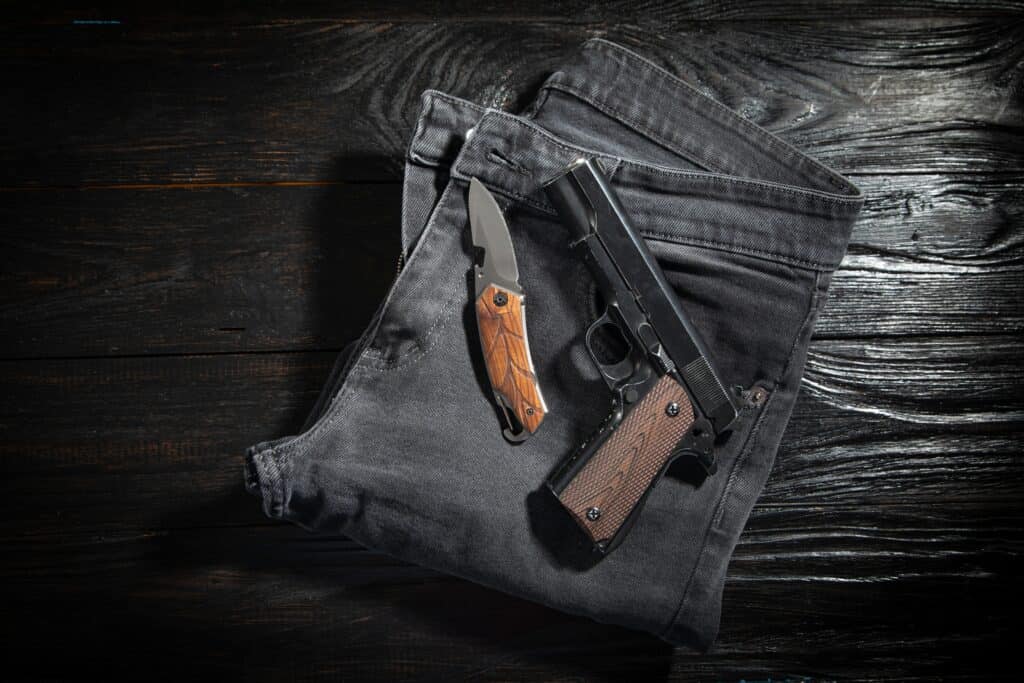
Permitless carry legislation is evolving across various states, potentially allowing residents to carry concealed weapons, including knives, without requiring permits or training. Just last year, Ohio enacted legislation that allows people to carry an array of concealed knives and similar weapons, demonstrating a shift in concealed carry weapon laws.
As it stands, permitless concealed carry for firearms is becoming increasingly popular, with Florida potentially becoming the 26th state to adopt such laws. Given this trend, it’s possible that legislation surrounding permitless carry for knives might follow suit.
It is essential to consider the balance between advocating for personal rights and prioritizing safety when assessing future legislative possibilities. Each state is unique in its approach to knife laws, which currently fall under federal jurisdiction only when traveling between states or entering federal properties, such as military bases.
Some cities, such as Philadelphia, have been legally challenged for their stringent knife carry restrictions. One example is Knife Rights’ federal lawsuit, which contests Philadelphia’s prohibition on carrying cutting weapons on public streets, public property, or within 100 ft. of any school. As legal actions continue to unfold, there may be increased pressure to reevaluate and potentially relax concealed carry restrictions for knives in certain jurisdictions.
In conclusion, it is clear that the landscape of permitless carry legislation is ever-changing. As the debate surrounding the rights and responsibilities of individuals carrying concealed weapons, including knives, continues, we can expect to see more shifts in legislation at both the state and federal levels.
Do Sheepsfoot Blades Have A Purpose? (Cuz They’re Ugly…)
Spetsnaz Machetes – Blades Of The Russian Special Forces
What Is The Actual Purpose Of A Spear Point Knife Blade?
CRKT CEO Review – Coolest, Most Worthless Knife Ever?
How Sharp Is A Scalpel? (Is It Sharper Than A Razor?)
Can You Shave With A Knife? (Yes, Here’s How)
As an Amazon Associate I earn from qualifying purchases.

